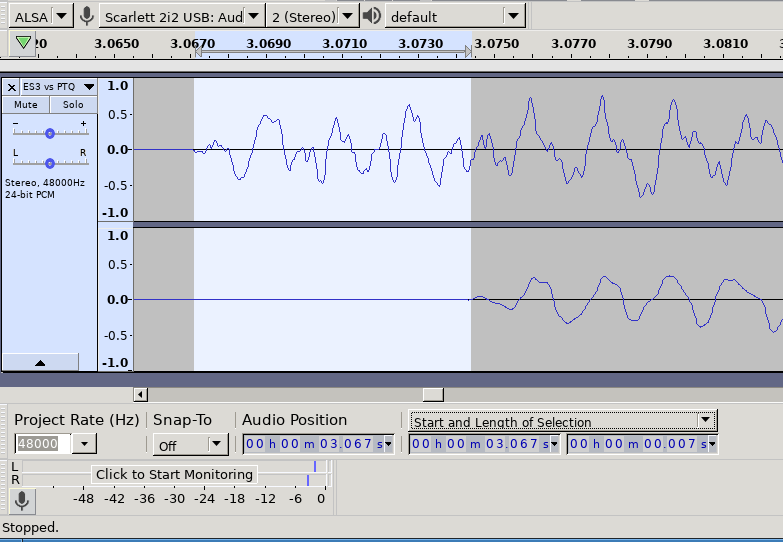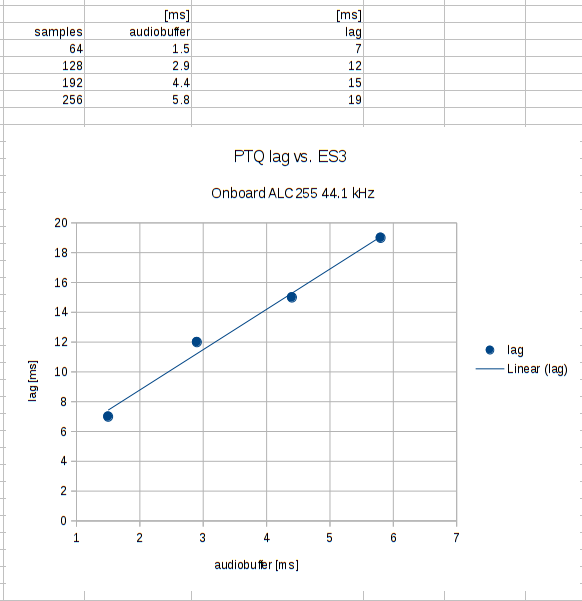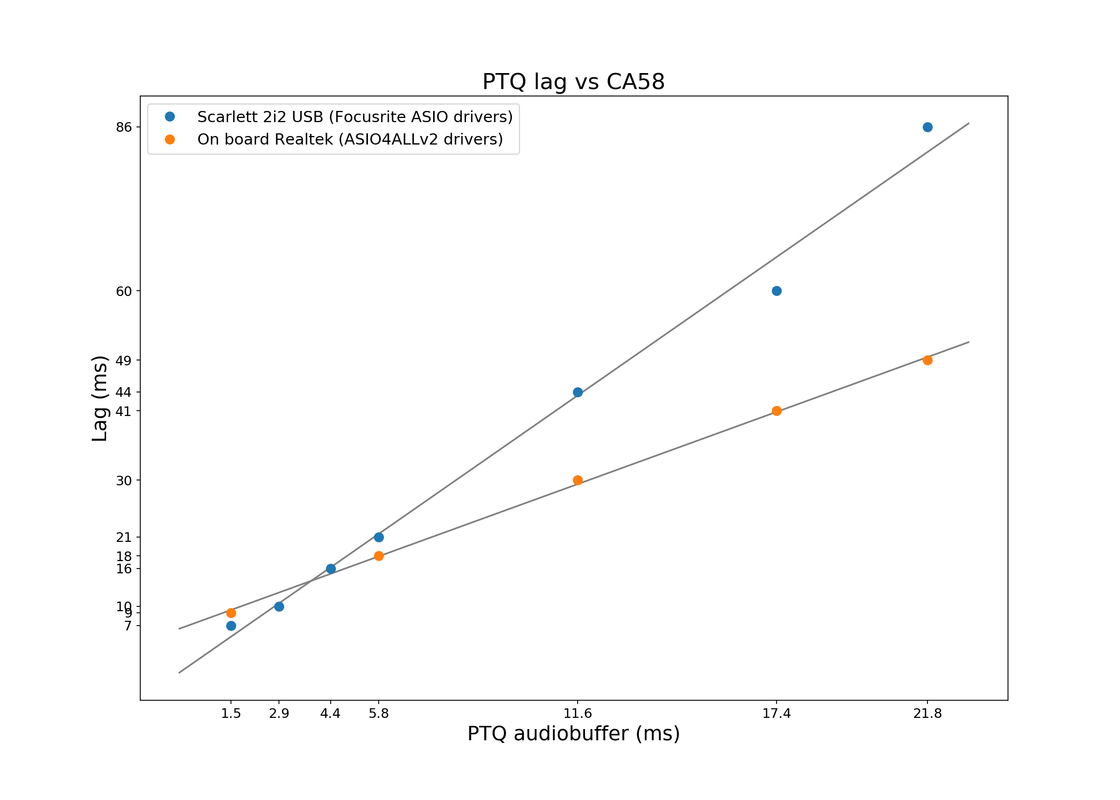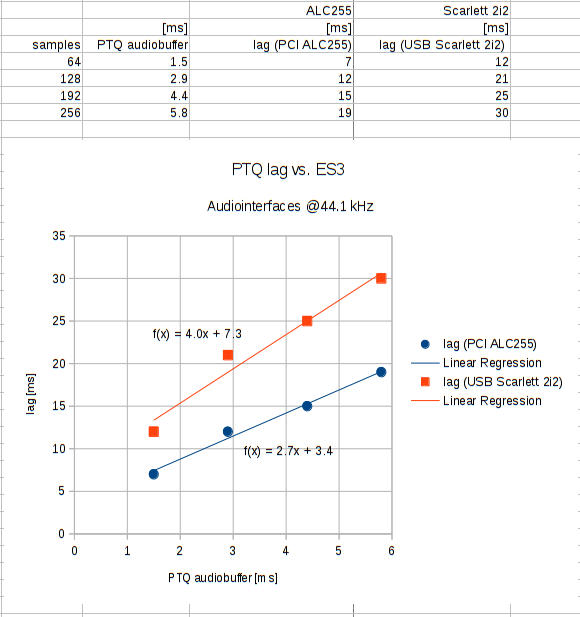Topic: non-additive latency
Hello,
Just an interesting observation that may be of benefit to others: I was trying to determine the added latency of the sound produced by pianoteq and a scarlett 2i2, using my Kawai CA58 as a controller, as compared to the sound produced by the CA58 itself.
As others have said many times before there are other factors that significantly add to the overall latency, such as communication over USB, sound card / driver etc., which I also find -- no surprise there. However what I did find surprising was that the pianoteq latency setting does not appear to be just an additive factor to the overall latency. I.e. if I change the setting from 1.5 ms to 4.4 ms, the real latency does not just become 2.9 ms longer. In my case it becomes 10 ms longer. The difference becomes even disproportionally larger with longer latency settings. E.g. a latency setting of 20 ms results in an added latency of a whopping 144 ms. Here are my measurements:
Pianoteq latency setting -> overall real latency increase as compared to CA58
0.7 ms -> 9 ms
1.5 ms -> 12 ms
2.9 ms -> 17 ms
4.4 ms -> 22 ms
5.8 ms -> 23 ms
7.3 ms -> 30 ms
8.7 ms -> 35 ms
10.2 ms -> 47 ms
20.3 ms -> 144 ms
To measure the above, I routed my soundcard analog output to my piano's analog input, and recorded with a mic the resulting mix of the pianoteq/scarlett sound and the piano's own sound, played over the piano speakers. I changed pianoteq's diapason setting so that pianoteq and piano generate different frequencies in response to the same key stroke, facilitating latency measurement.
My laptop is based on Windows 10, i5 6200U @ 2.3 GHz, 8Gb RAM. Pianoteq @ 44.1 kHz, 48 polyphony. 0.7 ms is not a good setting for this system, but 1.5 ms usually plays nicely. Apparently this adds 12 ms latency with respect to the CA58's own sound.
Gabe



